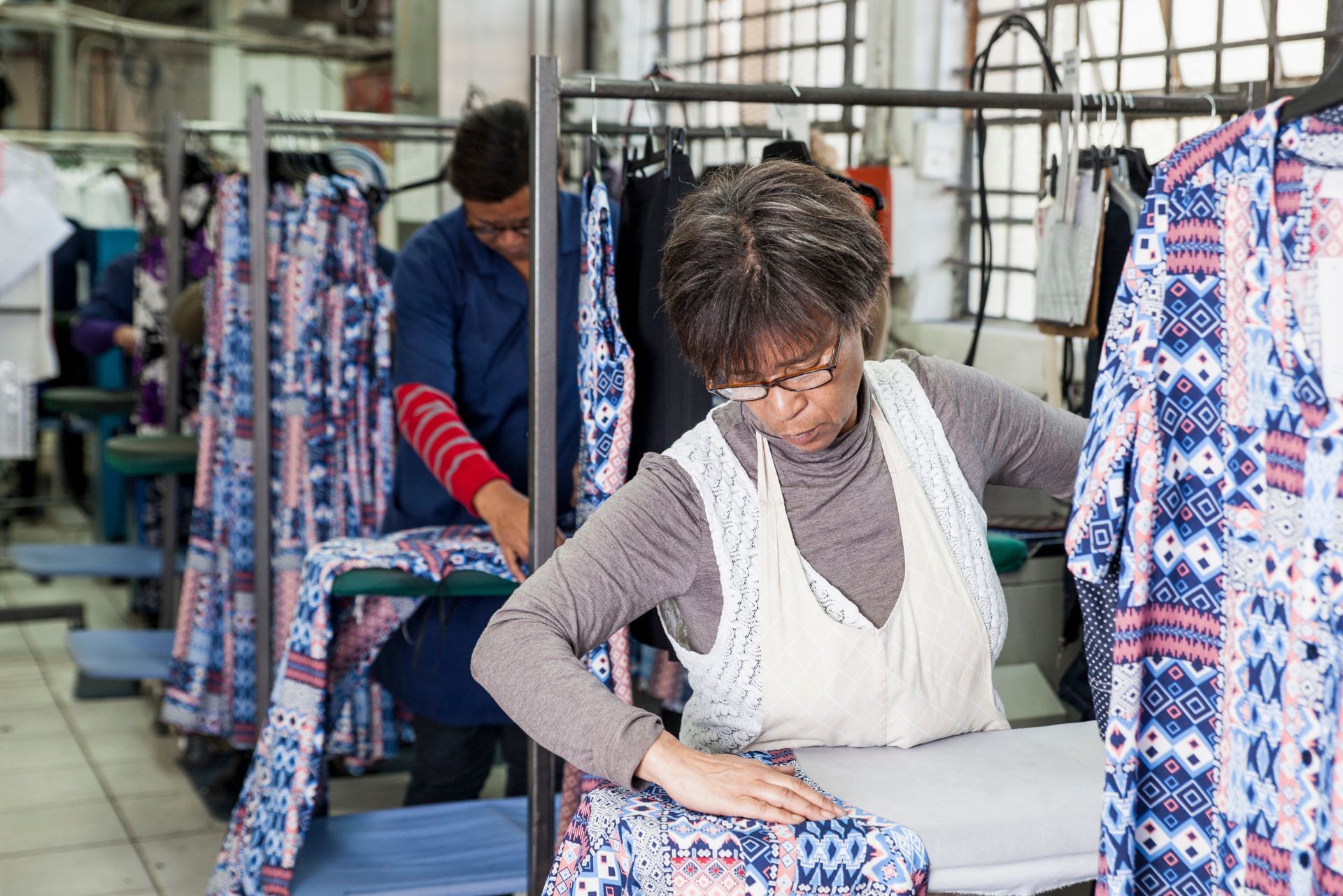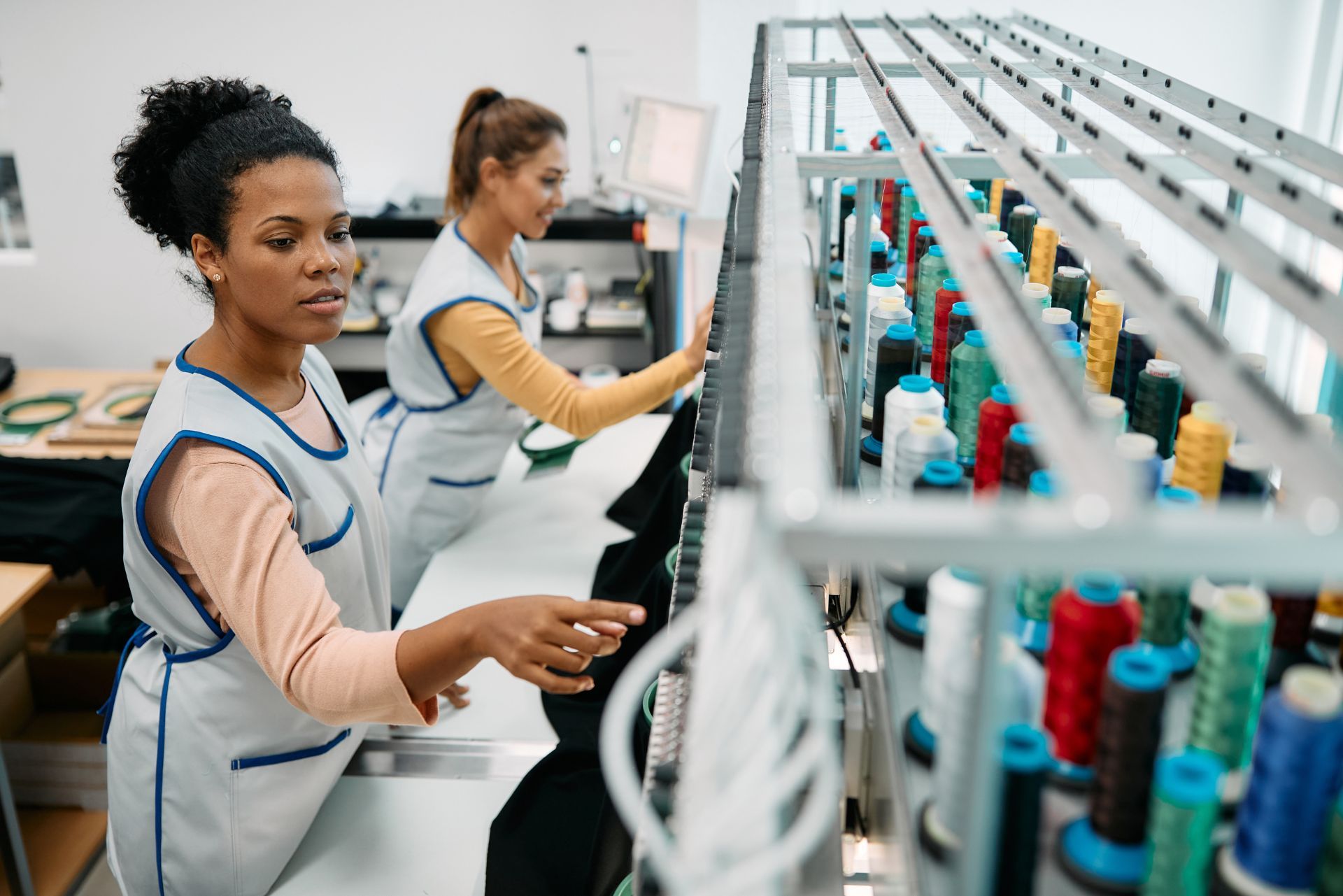Email us today!
Index
Contact Us
Phone
(248) 647-2500
hello@oaklandinsurance.com
Location
8055 Ortonville Rd, City of the Village of Clarkston, MI 48348
Plastics and rubber manufacturing is an industry that comes with its own unique set of
risks and challenges. From environmental risks to occupational hazards, it's important for manufacturers in this industry to have the right insurance coverage to
protect their business and assets. In this article, we will explore the various risks involved in plastics and rubber manufacturing and discuss the key insurance policies that manufacturers in this industry should consider. We will also provide information on additional coverage options and offer tips on how to choose the right insurance for your manufacturing business.
Understanding the Risks in the Plastics and Rubber Manufacturing Industry
The plastics and rubber manufacturing industry is an essential part of many sectors, including automotive, electronics, packaging, and construction. However, it also poses several risks that manufacturers need to be aware of and address. To effectively manage these risks, it is crucial to understand the specific hazards and liabilities associated with the manufacturing process.
One of the occupational hazards in the plastics and rubber manufacturing process is exposure to hazardous chemicals. Workers in these facilities may come into contact with solvents and resins, which can have harmful effects on their health if not properly handled. It is important for manufacturers to provide proper training and protective equipment to employees to minimize the risk of chemical exposure. Additionally, regular monitoring of air quality and implementing safety protocols can help create a safer work environment.
Physical risks are also a concern in the manufacturing process. Machinery accidents can occur if proper safety measures are not in place. Manufacturers should ensure that all machinery is regularly inspected and maintained to prevent accidents. Providing training to employees on machine operation and safety procedures is also crucial to minimize the risk of injuries.
Repetitive motion injuries are another occupational hazard in the plastics and rubber manufacturing industry. Workers who perform repetitive tasks, such as assembly line work, may develop musculoskeletal disorders over time. Implementing ergonomic workstations and providing regular breaks can help reduce the risk of these injuries. It is also important for manufacturers to encourage employees to report any discomfort or pain and provide access to medical treatment if needed.
Environmental Risks and Liability
Plastics and rubber manufacturing can have significant environmental impacts. The production process often involves the use of toxic substances, which may result in pollution if not properly handled or disposed of. Manufacturers should have robust waste management systems in place to ensure proper handling and disposal of hazardous materials. Implementing recycling programs and exploring more sustainable production methods can also help reduce the environmental impact of the industry.
The improper disposal of plastic waste is a major concern in the plastics and rubber manufacturing industry. Plastic waste can take hundreds of years to decompose, and if not properly managed, it can contribute to environmental pollution and harm ecosystems. Manufacturers should consider implementing recycling initiatives and exploring alternative materials that are more environmentally friendly.
To mitigate the environmental risks associated with plastics and rubber manufacturing, manufacturers should consider environmental liability insurance. This coverage will protect your business in the event of environmental pollution, clean-up costs, and legal liabilities arising from your manufacturing activities. It is important to work with insurance providers who specialize in environmental liability to ensure that your coverage adequately addresses the specific risks of your industry.
Product Liability Concerns
Products manufactured in the plastics and rubber industry have the potential to cause harm if they are defective or malfunction. Manufacturers have a legal responsibility to ensure that their products are safe for consumers to use. However, despite rigorous quality control measures, defects can still occur. Product liability insurance is crucial for manufacturers to protect against claims of bodily injury or property damage resulting from their products.
This insurance not only covers legal defense costs but also provides compensation in the event of a successful claim. It is important to carefully review your product liability insurance policy to ensure that it adequately covers the risks associated with your specific products. Manufacturers should also have a robust quality control process in place to minimize the risk of defects and ensure that their products meet safety standards.
In conclusion, the plastics and rubber manufacturing industry offers numerous opportunities for growth and innovation. However, it is important for manufacturers to be aware of the risks and take proactive measures to address them. By understanding the occupational hazards, environmental risks, and product liability concerns, manufacturers can create a safer work environment, minimize their environmental impact, and protect their business from potential liabilities.

Key Insurance Policies for the Manufacturing Industry
In addition to the specific risks mentioned above, plastics and rubber manufacturers should also consider the following key insurance policies to protect their business:
Commercial General Liability Insurance
Commercial general liability insurance provides coverage for third-party bodily injury and property damage claims. This insurance is essential for manufacturers as it protects against lawsuits arising from accidents or injuries that occur on their premises or as a result of their products.
For example, imagine a scenario where a customer visits a plastics manufacturing facility and slips on a wet floor, resulting in a serious injury. Without commercial general liability insurance, the manufacturer could be held financially responsible for the customer's medical expenses, rehabilitation costs, and any legal fees associated with the lawsuit.
By having this insurance in place, manufacturers can have peace of mind knowing that they are protected against unforeseen accidents and the potential financial burden that comes with them.
Workers' Compensation Insurance
As mentioned earlier, workers' compensation insurance is crucial to protect your employees in the event of work-related injuries or illnesses. It covers medical expenses, rehabilitation costs, and lost wages, providing financial support to your employees while also protecting your business from potential lawsuits.
Consider a situation where an employee working in a rubber manufacturing facility develops a respiratory illness due to prolonged exposure to harmful chemicals. Without workers' compensation insurance, the manufacturer could be liable for the employee's medical treatment, ongoing care, and any resulting disability benefits.
Having workers' compensation insurance not only ensures that your employees receive the necessary support and care they need but also safeguards your business from costly legal battles and potential reputational damage.
Property Insurance
Property insurance is essential for manufacturers as it covers damage to buildings, machinery, equipment, and inventory due to events such as fire, theft, or natural disasters. This insurance provides financial protection against the loss or damage of your physical assets.
Imagine a scenario where a fire breaks out in a plastics manufacturing facility, causing extensive damage to the building, machinery, and inventory. Without property insurance, the manufacturer would be responsible for bearing the full cost of repairing or replacing these assets, which could be financially devastating.
By having property insurance in place, manufacturers can mitigate the financial impact of such events and ensure that their operations can resume as quickly as possible.
Environmental Liability Insurance
Environmental liability insurance, as mentioned earlier, is crucial for manufacturers in the plastics and rubber industry. It protects your business from the financial impacts of environmental pollution, clean-up costs, and legal liabilities arising from your manufacturing activities.
Consider a situation where a rubber manufacturing facility accidentally releases toxic chemicals into a nearby river, resulting in significant environmental damage and potential harm to wildlife and nearby communities. Without environmental liability insurance, the manufacturer would be responsible for the costly clean-up efforts, legal fees, and potential fines or penalties imposed by regulatory authorities.
By having this insurance in place, manufacturers can protect their business from the financial consequences of environmental incidents and ensure compliance with environmental regulations.
Additional Coverage Options for Plastics and Rubber Manufacturers
In addition to the key insurance policies mentioned above, plastics and rubber manufacturers may also consider the following additional coverage options:
Equipment Breakdown Insurance
Equipment breakdown insurance provides coverage for the repair or replacement of machinery and equipment that breaks down due to mechanical failure, electrical short circuits, or other covered incidents. This coverage helps minimize the financial impact of equipment failures on your business operations.
Imagine a scenario where your manufacturing facility heavily relies on a specialized extrusion machine to produce high-quality plastic products. This machine, due to its complex nature, is susceptible to mechanical failures. Without equipment breakdown insurance, a sudden breakdown could halt your production line, leading to significant financial losses. However, with this coverage, you can have peace of mind knowing that the costs of repairing or replacing the machine will be covered, allowing you to resume operations swiftly.
Business Interruption Insurance
Business interruption insurance provides coverage for the loss of income and extra expenses incurred as a result of a covered event that interrupts your business operations. This insurance can be especially valuable for manufacturers as it helps to bridge the income gap during periods of downtime caused by events such as machinery breakdowns or natural disasters.
Consider a situation where a fire breaks out in your manufacturing facility, causing extensive damage to your equipment and rendering the premises temporarily unusable. Without business interruption insurance, not only would you face the costs of repairing or replacing the damaged equipment, but you would also suffer from a loss of income during the downtime. However, with this coverage, you can receive compensation for the income you would have earned and the extra expenses incurred, such as renting a temporary workspace or hiring additional staff to expedite the recovery process.
Product Recall Insurance
Product recall insurance can be crucial for manufacturers in the plastics and rubber industry, as it provides coverage for the costs associated with recalling and replacing defective products. This coverage can help protect your business from the financial burden of a product recall, including the costs of notifying customers, conducting inspections, and managing public relations.
Imagine that your company discovers a defect in one of its rubber products that poses a safety risk to consumers. In order to ensure customer safety and maintain your brand reputation, you decide to initiate a product recall. Without product recall insurance, the costs of notifying customers, retrieving the defective products, and conducting thorough inspections could be overwhelming. However, with this coverage, you can mitigate the financial impact of a product recall, allowing you to focus on rectifying the issue and rebuilding trust with your customers.

How to Choose the Right Insurance for Your Manufacturing Business
Choosing the right insurance for your plastics and rubber manufacturing business requires careful consideration of your specific risks, business operations, and budget. Here are some tips to help you make an informed decision:
Assessing Your Business Risks
Start by conducting a thorough risk assessment of your manufacturing operations. Identify the potential hazards, liabilities, and vulnerabilities specific to your business. This will help you determine the types and amount of coverage you need.
Understanding Policy Terms and Conditions
When reviewing insurance policies, pay close attention to the terms and conditions, exclusions, limits, and deductibles. Understand what is covered and what is not. Consider consulting with an experienced insurance broker who can help you navigate through the complexities of insurance policies.
Working with an Experienced Insurance Broker
An experienced insurance broker who specializes in the manufacturing industry can be an invaluable resource. They can help you assess your risks, understand policy options, and find the most suitable insurance solutions for your business. They have the knowledge and expertise to negotiate coverage terms and help you secure competitive premiums.
In conclusion, plastics and rubber manufacturers face unique risks that require specialized insurance coverage. By understanding the risks, evaluating key insurance policies, considering additional coverage options, and working with an experienced insurance broker, you can protect your business from potential financial losses and ensure its long-term success.
REQUEST A QUOTE
Speak with a plastics and rubber manufacturer insurance specialist today!
Get started today!
Prefer to speak with an agent now?







